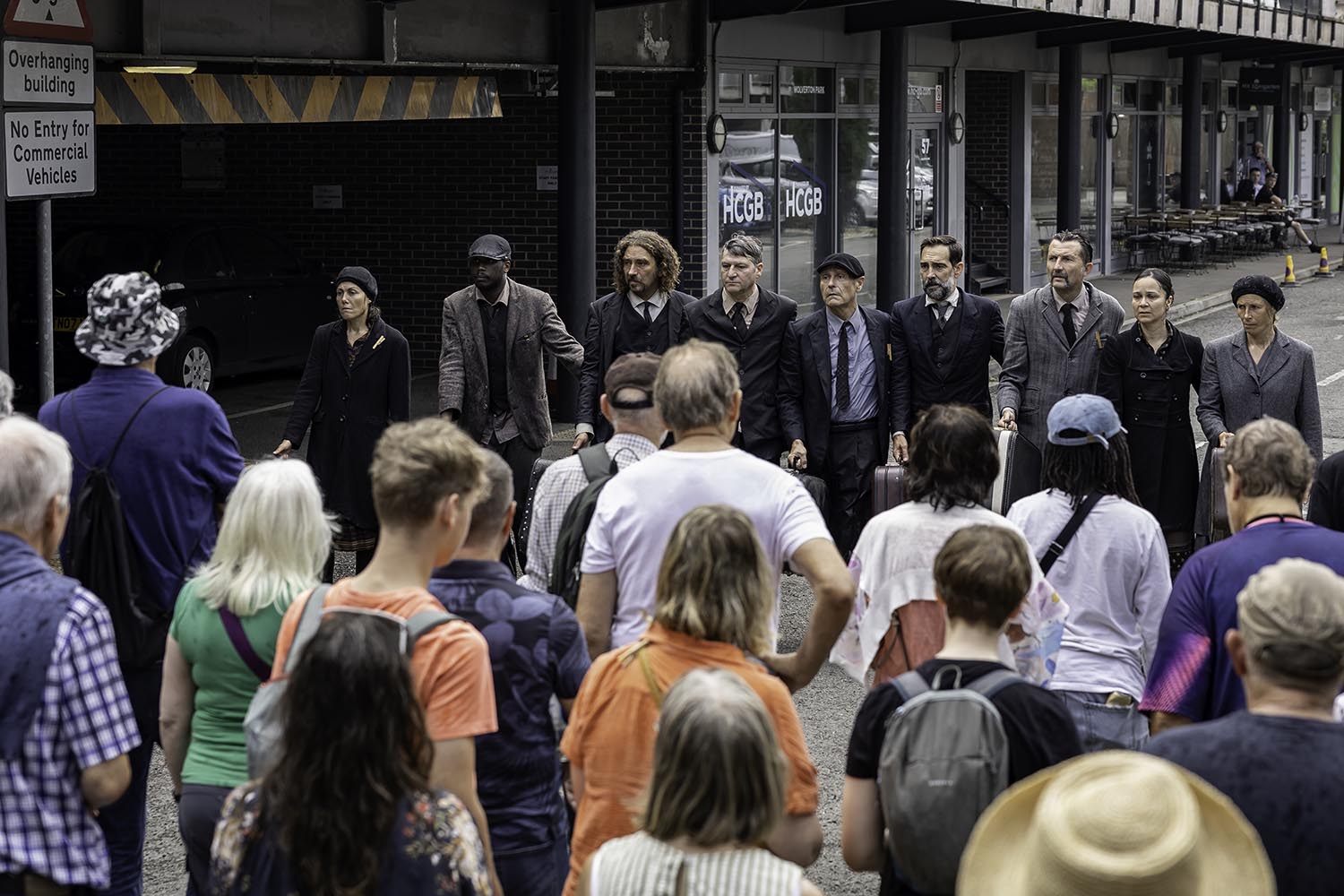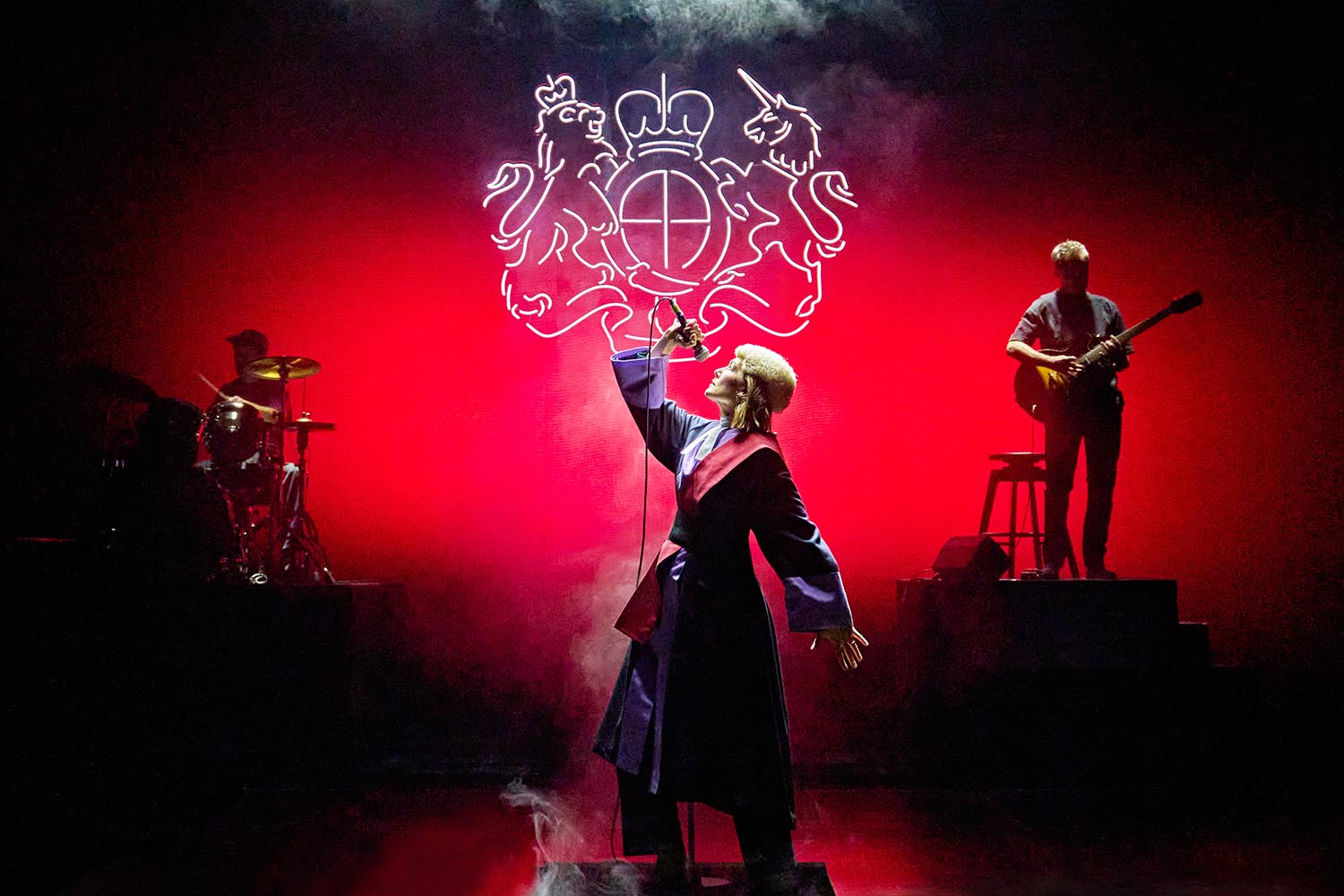Inter Alia lands with the certainty of box-office success. Among other things, it has the draw of Rosamund Pike, returning to the stage after 15 years as Jessica. Suzie Miller’s drama also has reassuring echoes of her hit Prima Facie, through which Jodie Comer scythed so memorably and which she reprises next year: both plays have a Latin title and a lawyer heroine; both are directed by Justin Martin. Crucially, the subject matter touches a nerve, vibrating after Adolescence and loosely connected to last month’s legislation on online pornography. Audiences are asked to consider how boys are being brought up.
This is an accomplished piece of provocation: people start to argue before they leave their seats. Pike is fresh and forceful, completely persuasive as a woman skittering between family and her duties as a judge. Miriam Buether projects the dilemma perfectly in a design in which home and court slide in and out of each other disruptively, and in a costume featuring a witty apron patterned like a judge’s uniform that is tied on over kitchen mufti. Martin speeds the action along, with his trademark use of furniture-climbing. Jasper Talbot, who plays Jessica’s son, brims with promise as a youth in whom sullenness and sweetness alternate, like an expiring lightbulb.
Yet Miller’s play does not live up to the threat of its subject: a teenage boy accused, a family in disarray. Too much is familiar; too much is spelled out. The early scenes are brisk, recognisable but routine: an angst-tinged-with-comedy study of the professional woman, delivered in a breathless present tense – “as a mother, I always feel guilty” – drawing on a ready-made vocabulary: the word “juggling” might be given a rest for a while.
This is an accomplished piece of provocation: people start to argue before they leave their seats
This is an accomplished piece of provocation: people start to argue before they leave their seats
Then comes the ironic pivot: an overlap of the personal and professional that echoes the turning point in Prima Facie. Darkness floods the action: a hard-to-read son, a father contorted by his own upbringing, a mother riven by remorse. All reactions worth staging but so neatly produced as to seem mechanical rather than overwhelming: a problem for a woman rather than the devastation of a boy. Inter Alia is edgy rather than disruptive. Like the tote bags on sale at the National that bear the play’s opening words –“The fucking patriarchy!” – this is not so much the arrival of the revolution as its commodification.
At the far theatrical extreme from the sleek presentation of a debate in Inter Alia is Fugit, the latest immersive promenade performance by the Catalan company Kamchàtka, brought to the UK as part of IF: Milton Keynes international festival.
Fugit roughs up the distinction between audience and performers, and at times almost roughs up its spectators (bring a mac). It might seem absurd, almost offensive, to suggest that running through the alleys, graveyards and back gardens of Wolverton can deliver a sense of forced flight, yet this is a show that can subtly change participants.
Tiny acts of trust open a trapdoor in the imagination: it is ridiculously unnerving to relinquish mobile phone and identity card to an unknown person and watch them being thrown into a plastic bag in a wholesale carpet store: what if your entire security were at stake?

‘Tiny acts of trust open a trapdoor in the imagination’: the cast of Fugit on the streets of Wolverton, Milton Keynes
Minor bewilderments conjure a darker landscape of unknowing: as you follow a figure waving a suitcase above his head, distinguishable from an audience member only by the intensity of his gaze and the shabby formality of his clothes, how do you know that he will lead you to safety?
You scamper, sometimes crouching, from one unknown stopping place to another. In an empty warehouse, you watch people about to flee who have carved out provisional perches for themselves – one peels potatoes, one saws a heap of pallets, one pegs out sheets – until the summons to leave is heard.
Sitting beside a gravestone, one of our leaders digs out a plastic bundle containing a lump of bread – and shares it. You bunch together in a garage where the shutter snaps down to block out the light and reach for the matches you have been given. The matches themselves are tiny emblems: the brand name is “golondrina”, the Spanish for swallow, and the box carries the silhouette of a migrating bird.
Newsletters
Choose the newsletters you want to receive
View more
For information about how The Observer protects your data, read our Privacy Policy
You are blindfolded, stumbling over unknown territory for what seems hours, guided but befuddled. When you eventually open your eyes to the light, you do not know where you are. That uncertainty, tinged with relief, is as stimulating as any resolution.
Inter Aliaruns at the National theatre, London, until 13 September
Photographs by National theatre/Espey

